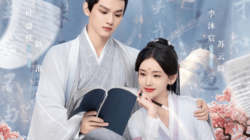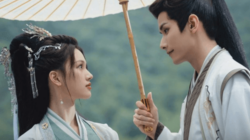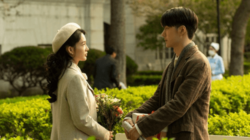The Last Immortal is a wonderful and moving Chinese drama that keeps you in your seat. It’s also a sequel to Ancient Love Poetry (with a different play name, which is a little confusing).
There’s nothing particularly groundbreaking about this Xianxia Chinese drama, but I found it to be a warm, heartfelt, and timeless story about the joys and sorrows of growing up – learning to love, learning to sacrifice, and learning to appreciate what you have. See the complete review of the Chinese drama The Last Immortal below!
Drama Details
Title: The Last Immortal (斗破苍穹之少年归来)
Episodes: 40
Release Date: December 11, 2023
Genres: Romance, Wuxia, Drama, Fantasy
Country: China
Original Network: Tencent Video
Available On: Viki
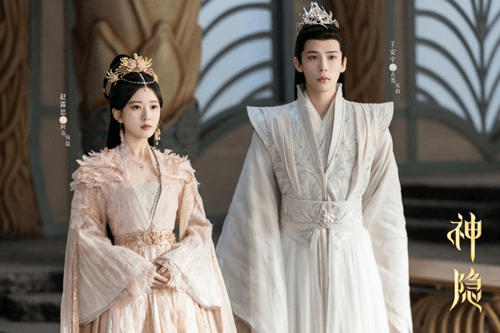
Synopsis and Plot Summary
In a fantastical realm teeming with enchantment and enigma, Feng Yin, a female spirit entangled in the enigmatic threads of her true self, sets forth on a compelling odyssey to gather the shards of her dispersed immortal essence.
Accompanying her is Gu Jin, the offspring of the revered “true god,” burdened by the confinement of his magical abilities, infusing their evolving relationship with intricate layers.
From erstwhile master and servant dynamics, their connection metamorphoses amid personal tribulations. Through trials and tribulations, a profound bond surfaces, hinting at the possibility of a more profound connection.
As destinies weave together, propelled by admiration and trust, Feng Yin and Gu Jin embark on a metamorphic expedition to reclaim her immortal essence.
The Last Immortal Ending Explained
The Last Immortal Chinese drama has a happy ending. In the ending of “The Last Immortal,” Ah Yin and Gu Jin successfully collect the pieces of Fengyin Immortal’s soul. Ah Yin, who faced challenges throughout her life, discovers her divine nature.
She realizes that gods and demons are temporary beings in the world, and after going through numerous cycles, she understands her significance. The drama wraps up with a touching realization about the temporary nature of immortal beings, emphasizing the cyclical aspect of existence.
The conclusion provides a sense of completion to Ah Yin’s journey, highlighting themes of self-discovery and the inevitable cycles of the cosmos. The characters’ emotional depth and spiritual growth contribute to a satisfying ending, resonating with the broader themes of fantasy and romance explored throughout the series.
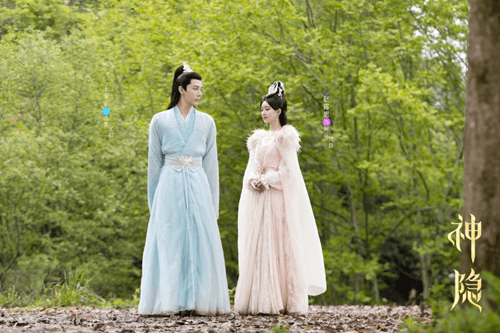
The Last Immortal Chinese Drama Review
If you’re a fan of Ancient Love Poetry, you absolutely should check out The Last Immortal. The story revolves around Yuan Qi, the son of the revered gods Bai Jue and Shang Gu, as he navigates his journey into adulthood after being sent to Daze Mountain as Donghua’s disciple.
The narrative kicks off after Bai Jue’s sacrifice and before his eventual return in Ancient Love Poetry.
Starting at 200 years old, Yuan Qi, under the alias Gu Jin, appears as a young teen in the beginning, a bit unconventional in the Xianxia genre. While some might question whether to watch Ancient Love Poetry first, The Last Immortal stands on its own.
However, knowledge of the prequel enhances understanding of the world-building and characters, especially as the story connects with events post-time-skip.
As a Xianxia genre enthusiast, I was naturally drawn to The Last Immortal due to its connection with Ancient Love Poetry. Initially, I was neutral towards Gu Jin, but as the story unfolded, subtle hints explained his aversion to cultivation, making me appreciate his character development.
Yuan Qi’s backstory adds a layer of sadness to his character, born without parents, ignored by his mother, and sent to Daze Mountain for training. The portrayal effectively conveys the emotional complexities, and Wang An Yu does an excellent job in bringing out Gu Jin’s nuanced emotions.
The drama explores themes of sacrifice, loneliness, and the responsibilities that come with godhood. Yuan Qi’s perspective offers a contrasting view to his father Bai Jue, showcasing the burdens of being a True God.
Zhao Lusi’s performance as A-Yin and Feng Yin is commendable, and the chemistry with Wang An Yu is evident on screen. The drama delves into their love story, intertwining with tribulations and challenges.
While some may prefer Ancient Love Poetry, I appreciate The Last Immortal for its unique perspective on being a True God in the Three Realms. The character arcs and tribulations contribute to a compelling narrative.
The ending is explained well, addressing how Yuan Qi can return, but personally, it left me conflicted. The reunion lacked a satisfying emotional climax, and I wished for a final hug between Yuan Qi and Feng Yin.
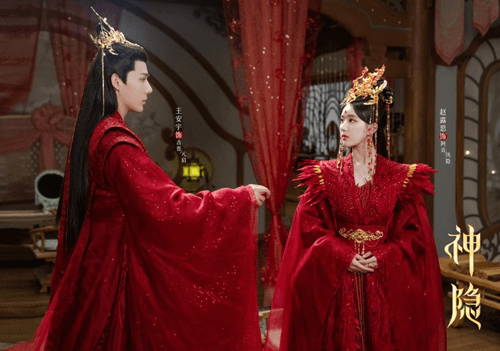
The Last Immortal Chinese Drama Cast
Main Role
Zhao Lu Si as A Yin / Feng Yin
Wang An Yu as Gu Jin / Yuan Qi / Pu Yin
Support Role
Li Yun Rui as Hong Yi / A Jiu
Cao Fei Ran as Hua Shu
He Kai Lang as Xiu Yan / Ao Ge
Cui Hang as Lan Feng
Ying Er as Hong Ruo
Xue Jia Ning as Feng Yuan
Jia Nai as Yan Shuang
Kenji Chen as Ming Qi
Huang Ri Ying as San Sheng Shi
Xu Ke as Feng Ming
Qi Pei Xin as Bi Bo
Sun Yi as Xian Zhu
Xu Ling Chen as Qing Yi
Fan Jing Wen as A Yu
Liu Li as Qing Lin
And more
My Verdict
In conclusion, I recommend The Last Immortal to fans of Ancient Love Poetry. Both dramas have their unique charm, and it’s worth experiencing both for a more comprehensive understanding of the interconnected stories. So, for this The Last Immortal Chinese drama review, I would give it a score of 9,3/10.
Read Also:



